Berlioz’s Symphonie Fantastique

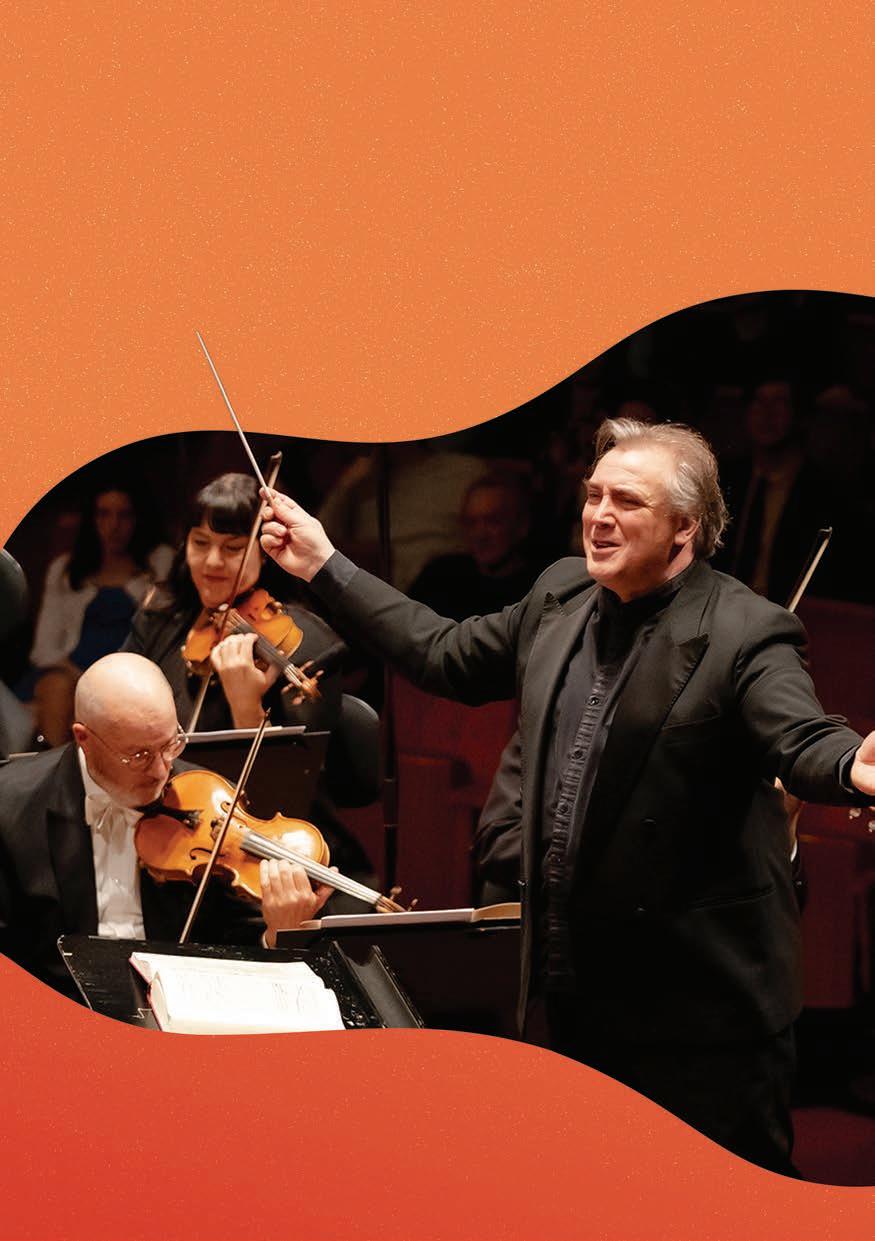
14–17 July
Arts Centre Melbourne, Hamer Hall

CONCERT PROGRAM


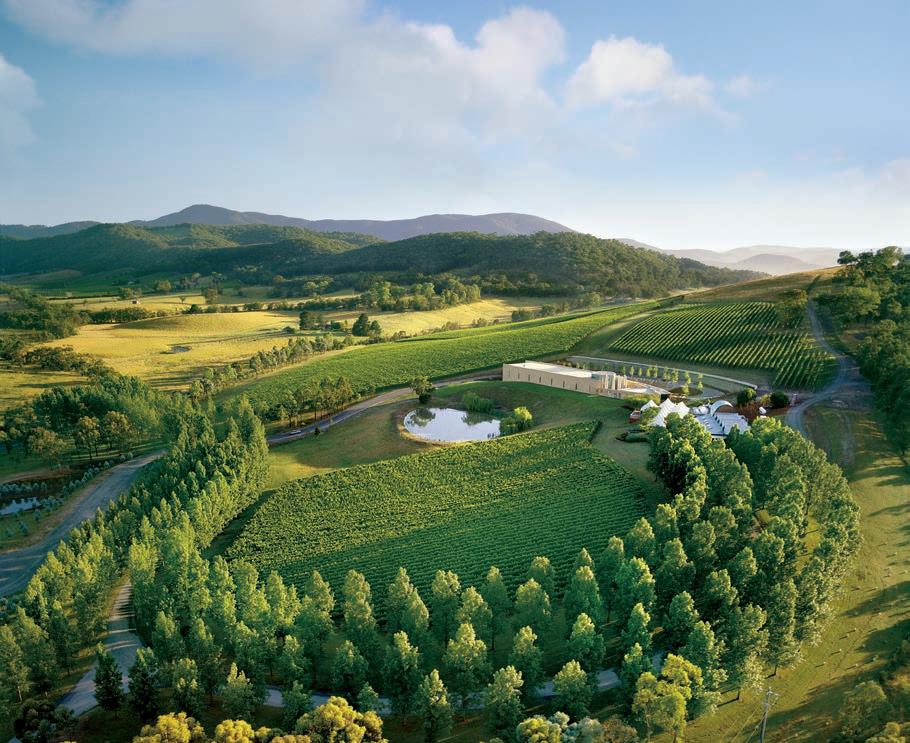
TarraWarra Estate provides you with the perfect backdrop for a day of wine tasting, lunch or simply taking in the views from the deck. Only an hour from Melbourne and you’ll find yourself enjoying our cool climate Chardonnay and Pinot Noir in our subterranean cellar door. 311 Healesville - Yarra Glen Road, Yarra Glen, VIC 3775 Australia +61 3 5962 3311 www.tarrawarra.com.au enq@tarrawarra.com.au _tarrawarra_ /tarrawarra
Artists
Melbourne Symphony Orchestra
Jaime Martín conductor
Alexandra Oomens soprano*
Stephanie Dillon mezzo soprano*
Gondwana Voices*
Lyn Williams AM children’s chorus director*
Program
MICHAEL ATHERTON Shall we dream?*
MENDELSSOHN A Midsummer Night’s Dream: Incidental music (excerpts)*
– INTERVAL –
BERLIOZ Symphonie Fantastique
Our musical Acknowledgment of Country, Long Time Living Here by Deborah Cheetham Fraillon AO, will be performed at these concerts.
*These pieces will only be performed on July 14 and July 15.
Concert events
Pre-concert talk: 14 & 15 July at 6:45pm in Stalls Foyer, Level 2 at Hamer Hall. Learn more about the music with a pre-concert talk with MSO Library Manager
Luke Speedy-Hutton.
Post-concert talk: 17 July at 7:45pm in Stalls Foyer, Level 2 at Hamer Hall. Stick around for an informative and entertaining post-concert talk with Cybec Assistant Conductor Carlo Antonioli and MSO Chief Conductor Jaime Martín.
Duration
14–15 July: 2 hours and 5 minutes including interval. 17 July: one hour with no interval.^
In consideration of your fellow patrons, the MSO thanks you for silencing and dimming the light on your phone. These concerts
^ Quick Fix at Half Six is proudly presented by TarraWarra Estate

may be recorded for future broadcast on MSO.LIVE
Acknowledging Country
Australia, the MSO has developed a musical Acknowledgment of Country with music composed by Yorta Yorta composer Deborah Cheetham Fraillon AO, featuring Indigenous languages from across Victoria. Generously supported by Helen Macpherson Smith Trust and the Commonwealth Government through the Australian National Commission for UNESCO, the MSO is working in partnership with Short Black Opera and Indigenous language custodians who are generously sharing their cultural knowledge.
The Acknowledgement of Country allows us to pay our respects to the traditional owners of the land on which we perform in the language of that country and in the orchestral language of music.
from a land which has been nurtured by the traditional owners for more than 2000 generations. When we acknowledge country we pay respect to the land and to the people in equal measure.
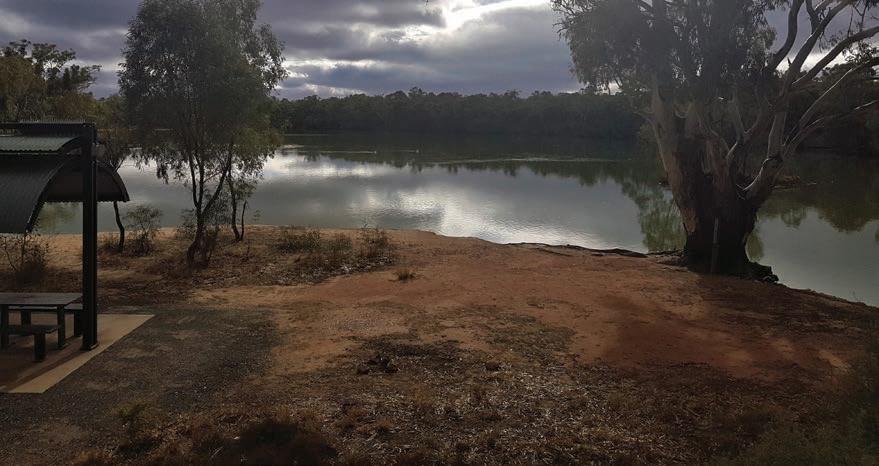
As a composer I have specialised in coupling the beauty and diversity of our Indigenous languages with the power and intensity of classical music. In order to compose the music for this Acknowledgement of Country Project I have had the great privilege of working with no fewer than eleven ancient languages from the state of Victoria, including the language of my late Grandmother, Yorta Yorta woman Frances McGee. I pay my deepest respects to the elders and ancestors who are represented in these songs of acknowledgement and to the language custodians who have shared their knowledge and expertise in providing each text.


I am so proud of the MSO for initiating this landmark project and grateful that they afforded me the opportunity to make this contribution to the ongoing quest of understanding our belonging in this land.
 — Deborah Cheetham Fraillon AO
— Deborah Cheetham Fraillon AO
4
Melbourne Symphony Orchestra
Established in 1906, the Melbourne Symphony Orchestra is Australia’s pre-eminent orchestra and a cornerstone of Victoria’s rich, cultural heritage.
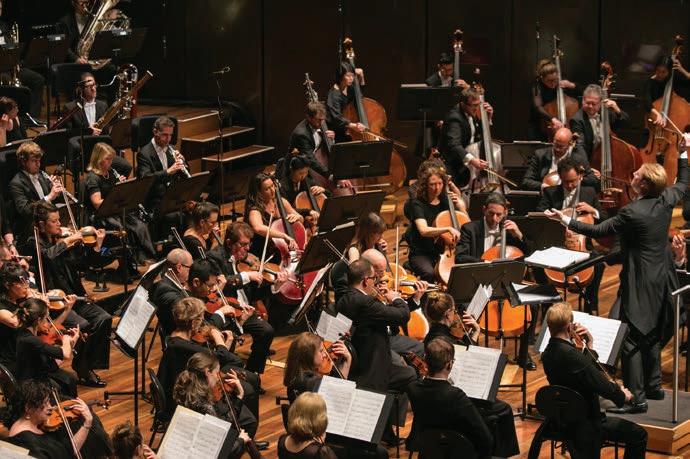
Each year, the MSO engages with more than 5 million people, presenting in excess of 180 public events across live performances, TV, radio and online broadcasts, and via its online concert hall, MSO.LIVE, with audiences in 56 countries.
With a reputation for excellence, versatility and innovation, the MSO works with culturally diverse and First Nations leaders to build community and deliver music to people across Melbourne, the state of Victoria and around the world.
In 2023, the MSO’s Chief Conductor, Jaime Martín continues an exciting new phase in the Orchestra’s history. Maestro Martín joins an Artistic Family that includes Principal Guest Conductor, Xian Zhang, Principal Conductor in Residence, Benjamin Northey, Conductor Laureate, Sir Andrew Davis CBE, Cybec Assistant Conductor Fellow, Carlo Antonioli, MSO Chorus Director, Warren Trevelyan-Jones, Soloist in Residence, Siobhan Stagg, Composer in Residence, Mary Finsterer, Ensemble in Residence, Gondwana Voices, Cybec Young Composer in Residence, Melissa Douglas and Young Artist in Association, Christian Li.
The Melbourne Symphony Orchestra respectfully acknowledges the people of the Eastern Kulin Nations, on whose un-ceded lands we honour the continuation of the oldest music practice in the world.




5 BERLIOZ’S SYMPHONIE FANTASTIQUE | 14–17 July
Musicians Performing in this Concert
FIRST VIOLINS
Zoe Black*
Guest Concertmaster
Tair Khisambeev
Assistant Concertmaster
Di Jameson OAM and Frank Mercurio#
Peter Edwards
Assistant Principal
Emily Beauchamp^
Kirsty Bremner
Sarah Curro
Peter Fellin
Deborah Goodall
Karla Hanna
Anne-Marie Johnson
Kirstin Kenny
Eleanor Mancini
Anne Neil#
Susannah Ng*
Ioana Tache*
Kathryn Taylor
SECOND VIOLINS
Matthew Tomkins Principal
The Gross Foundation#

Robert Macindoe
Associate Principal
Mary Allison
Isin Cakmakçioglu
Jacqueline Edwards*
Freya Franzen
Cong Gu
Newton Family in memory of Rae Rothfield#
Isy Wasserman
Philippa West
Andrew Dudgeon AM#
Patrick Wong
Hyon Ju Newman#
Roger Young
Shane Buggle and Rosie Callanan#
VIOLAS
Christopher Moore Principal
Di Jameson OAM and Frank Mercurio#
Merewyn Bramble*
Heidi von Bernewitz*
Lauren Brigden
Katharine Brockman
Anthony Chataway
Dr Elizabeth E Lewis AM#
William Clark
Karen Columbine*
Ceridwen Davies*
Gabrielle Halloran
Jenny Khafagi
Fiona Sargeant
CELLOS
David Berlin Principal
Rachael Tobin
Associate Principal
Anonymous#
Elina Faskhi
Assistant Principal
Di Jameson OAM and Frank Mercurio#
Jonathan Chim*
Rohan de Korte
Andrew Dudgeon AM#
Sarah Morse
Rebecca Proietto
Caleb Wong
Michelle Wood
Andrew and Judy Rogers#
DOUBLE BASSES
Jonathon Coco
Acting Principal
Caitlin Bass*
Rohan Dasika
Benjamin Hanlon
Di Jameson OAM and Frank Mercurio#
Suzanne Lee
Stephen Newton
Sophie Galaise and Clarence Fraser#
Emma Sullivan*
FLUTES
Prudence Davis Principal
Anonymous#
Wendy Clarke
Associate Principal
Sarah Beggs
Alyse Faith^
Correct as of 6 July 2023
Learn more about our musicians on the MSO website
FANTASTIQUE | 14–17 July 6
BERLIOZ’S SYMPHONIE
OBOES
Michael Pisani
Acting Associate Principal
Ann Blackburn
The Rosemary Norman Foundation#
COR ANGLAIS
Rachel Curkpatrick
Acting Principal
Emmanuel Cassimatis*
CLARINETS
Philip Arkinstall
Associate Principal Oliver Crofts^
Craig Hill
Rosemary and the late Douglas Meagher#
BASSOONS
Jack Schiller Principal
Elise Millman
Associate Principal
Natasha Thomas
Dr Martin Tymms and Patricia Nilsson#
CONTRABASSOON
Brock Imison Principal
HORNS
Nicolas Fleury Principal
Margaret Jackson AC#

Ian Wildsmith*
Guest Associate Principal
Abbey Edlin
Nereda Hanlon and Michael Hanlon AM#
Rebecca Luton
Rachel Shaw
Gary McPherson#
TRUMPETS
Owen Morris Principal
Shane Hooton
Associate Principal
Glenn Sedgwick and Dr Anita Willaton#
William Evans
Rosie Turner
John and Diana Frew#
TROMBONES

Don Immel
Acting Principal
Richard Shirley
Mike Szabo Principal Bass Trombone
TUBA
Timothy Buzbee Principal
Jeff Baker*
TIMPANI


Brent Miller* Guest Principal
John Arcaro
Tim and Lyn Edward#
PERCUSSION
Shaun Trubiano Principal
Robert Cossom
Drs Rhyl Wade and Clem Gruen#
Greg Sully*
HARP
Yinuo Mu Principal Delyth Stafford*
^ MSO Academy 2023
# Position supported by

 * Denotes Guest Musician
* Denotes Guest Musician
BERLIOZ’S SYMPHONIE FANTASTIQUE | 14–17 July 7
Chief Conductor of the Melbourne Symphony Orchestra since 2022, Jaime Martín is also Chief Conductor of the National Symphony Orchestra (Ireland) and Music Director of the Los Angeles Chamber Orchestra. He is the Principal Guest Conductor of the Orquesta y Coro Nacionales de España (Spanish National Orchestra) for the 22/23 season and was Artistic Director and Principal Conductor of Gävle Symphony Orchestra from 2013 to 2022.
Having spent many years as a highly regarded flautist, Jaime turned to conducting full-time in 2013, and has become very quickly sought after at the highest level. Recent and future engagements include appearances with the London Symphony Orchestra, Dresden Philharmonic, Netherlands Philharmonic, Royal Stockholm
Philharmonic, Colorado Symphony, Dallas Symphony, Antwerp Symphony, Orquesta Sinfónica y Coro de RTVE (ORTVE) and Galicia Symphony orchestras, as well as a nine-city European tour with the London Philharmonic Orchestra.
Martín is the Artistic Advisor and previous Artistic Director of the Santander Festival. He was also a founding member of the Orquestra de Cadaqués, where he was Chief Conductor from 2012 to 2019.

London based Australian soprano
Alexandra Oomens is a Harewood Artist with English National Opera. She is a graduate of the Royal Academy Opera Programme at the Royal Academy of Music, and an alumna of the Georg Solti Accademia, where she worked with Maestro Alessandro Corbelli, Barbara Frittoli, and Sir Richard Bonynge.
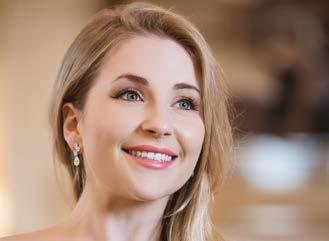
This season Alexandra will sing Elsie in Yeoman of the Guard, A lady in waiting in a concert version of Gloriana, and Frasquita in Carmen for ENO. She will also make her debut at The Grange Festival as Euridice in Gluck’s Orfeo and Belinda in Dido and Aeneas. In concert she will perform in Mendelsohn’s A Midsummer Night’s Dream with the Melbourne Symphony Orchestra, Messiah with The King’s Consort, Buxtehude’s Membra Jesu Nostri with Pinchgut Opera and the French premiere of Unsuk Chin’s Puzzles and Games with Orchestra Philharmonique de Radio France at the festival Présences.
In the 2023–2024 season Alexandra will be adding the roles of Pamina and Papagena to her repertoire, both with English National Opera.
Jaime Martín conductor
Alexandra Oomens soprano
| 14–17 July 8
BERLIOZ’S SYMPHONIE FANTASTIQUE
Stephanie Dillon mezzo soprano
Mezzo soprano Stephanie Dillon was born and raised in Moree, NSW, and is now based in Sydney. Stephanie is a versatile singer, showcasing her “distinctively edged sound” and “full-bodied mezzo warmth” in repertoire ranging from the Baroque to contemporary periods. Stephanie enjoys a varied career, both as a soloist and ensemble singer.
Stephanie has been a member of the Choir of St James’ King Street, Sydney since 2017. Stephanie enjoys regular collaborations with professional organisations in Australia, including Bach Akademie Australia, the Song Company, Pinchgut Opera, and the Australian Chamber Orchestra. Stephanie is the coArtistic Director of new vocal ensemble, CASTALIA Vocal Consort.
In 2022, Stephanie performed in various projects with Bach Akademie Australia, tours with the Song Company and the Australian Chamber Orchestra, and two programs with Pinchgut Opera, including Monteverdi’s Vespers.
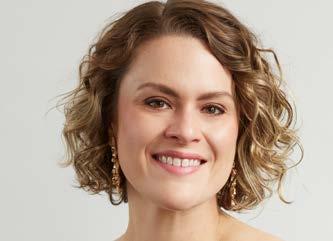
Notable 2023 engagements include Bach St John Passion with Christ Church St Laurence Sydney, Bach Magnificat in D with the Sydney Symphony Orchestra, projects with Bach Akademie Australia, and various concerts with CASTALIA Vocal Consort. This is Stephanie’s first appearance with the with the Melbourne Symphony Orchestra.
Lyn Williams AM children’s chorus director
Lyn Williams is widely regarded as one of the finest conductors of choirs around the world. For over 30 years, Lyn has harnessed the incredible power of young voices through her worldrenowned ensembles: the Sydney Children’s Choir, Gondwana Voices, the Gondwana Indigenous Children’s Choir and Marliya. Her choirs have appeared with the world’s leading orchestras and conductors and at festivals including the BBC Proms and Polyfollia.
Lyn has commissioned over 200 works from composers across Australia and around the world and her ability to forge innovative and meaningful collaborations is widely recognised. She continues to foster strong relationships with First Nations artists across Australia, bringing together cultural custodians and composers to create new works which preserve and celebrate Aboriginal and Torres Strait Island languages and cultures.
In 2017, Lyn received the Australia Council for the Arts’ Don Banks Music Award for outstanding and sustained contribution to music in Australia, in recognition of her lifework as founder and director of Gondwana Choirs. In 2021, Lyn received the Sir Bernard Heinze Memorial Award for outstanding contribution to Australian music.
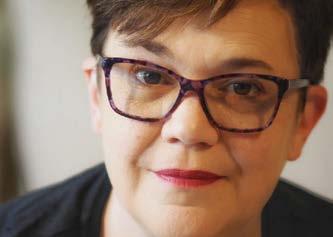
BERLIOZ’S SYMPHONIE FANTASTIQUE | 14–17 July 9
Gondwana Voices
Founded by Lyn Williams AM in 1997, Gondwana Voices is Australia’s national children’s choir for treble singers aged 10-17. It regularly performs with the country’s leading ensembles and has built a reputation for performances of outstanding musicianship. The choristers of Gondwana Voices come from all around Australia, from the cities, the suburbs and the bush to perform captivating and challenging music. The choir tours nationally and internationally and has taken part in international choral festivals including the World Symposium on Choral Music, Rotterdam; America Cantat, Mexico City; Polyfollia, Normandy; and the BBC Proms. In 2019, Gondwana Voices performed Brett Dean’s Vexations and Devotions with the Berlin Radio Symphony Orchestra under maestro Vladimir Jurowksi at the Berlin Philharmonie. The choir has recorded three albums for ABC Classics.
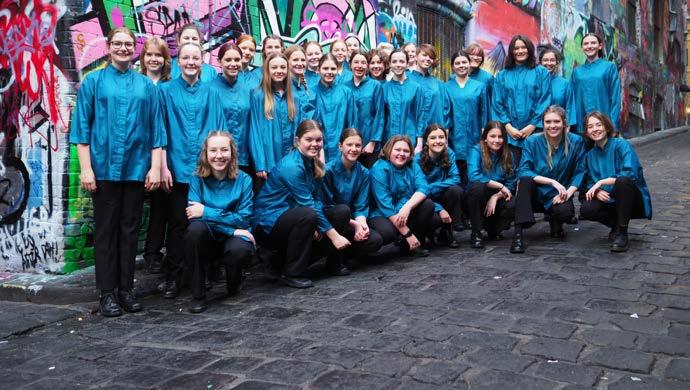
Gondwana Voices Chorus List
Arlie Bragg
Heidi Campbell
Rachel Carpenter
Holly Dauparas
Paige Easson
Grace Endres-Blakeney
Madeline Flannery
Sienna Flannery
Maddie Fletcher
Hannah Green
Sonya Gussak
Maya Hersch
Abigail Hughes
Zoë Humberstone
Lucia Juarez
Max Junge
Bryn Lymburner
Dylan Marrick
Teresa Mayo
Nathan Nguyen
Sofia Nicholas
Beatrix Parton
Chelsea Porritt
Mira Prasad

Pyari Quereshi
Mia Rogers
Elizabeth Samuel
Saskia Scheib
India Smith
Eleanor Tehan
Lillian Tran
Zailey Waddingham
Claira Walker
Ebbeny Williams-Cherry
Erin Winsbury
Evelyn Zhu
FANTASTIQUE | 14–17 July 10
BERLIOZ’S SYMPHONIE
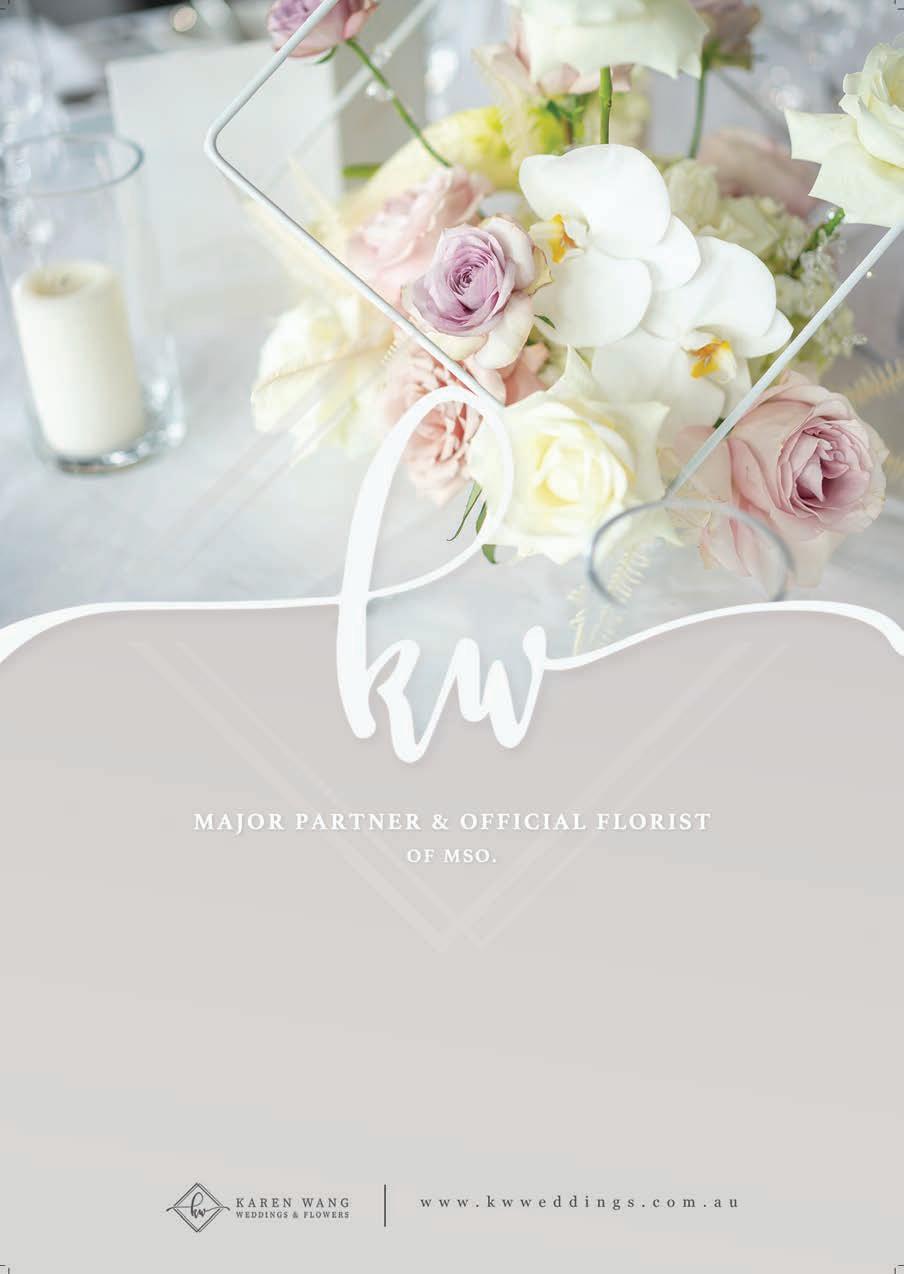

Program Notes
MICHAEL ATHERTON
(born 1950)
Shall we dream?
Gondwana Voices
Michael Atherton’s Shall we dream? is a movement from his 1995 work, The Mahogany Ship. A mahogany ship, relic or legend, is a thing to stir the imaginations of Australians. It was in 1846 that Captain John Mason of Port Fairy, Victoria, was riding his horse along a beach at Warrnambool, when he sighted a shipwreck. His written account of the incident has led to almost a hundred and fifty years of speculation over its origin and disappearance.
Michael Atherton provided a single melody from which Lyn Williams has created a mesmeric dream soundscape. The work is created anew each time it is performed, designed specifically for each space and its acoustic.
FELIX MENDELSSOHN (1809–1847)
A Midsummer Night’s Dream
Overture and Incidental music, Op.21 & 61
Overture
Scherzo
Song with Chorus ‘You spotted snakes’ Intermezzo
Nocturne
Wedding March
Funeral March
Finale
Alexandra Oomens soprano
Stephanie Dillon mezzo soprano
Gondwana Voices
The Overture to A Midsummer Night’s Dream has an elfin imagination and humour which neither Mendelssohn nor anyone else has ever surpassed. He was only 17 when he accomplished this brief miracle, orchestrating it with the deftness and delicacy that still set it apart from the orchestral sound of any other composer.
This was at the time when Felix and his beloved sister, Fanny, made their first acquaintance with Shakespeare in the famous Romantic German translations of Tieck and Schlegel, which are among the poetic masterpieces of German literature. In his enthusiasm Mendelssohn himself began to dream of composing music as a companion to Shakespeare’s immortal Dream.
In a letter written from the family home in Berlin early in July, 1826, and addressed to Fanny, Mendelssohn wrote: ‘I have grown accustomed to composing in our garden; there I completed two piano pieces in A major and E minor. Today or tomorrow I am going to dream there A Midsummer Night’s Dream. This is, however, an enormous audacity…’.
FANTASTIQUE | 14–17 July 12
BERLIOZ’S SYMPHONIE
A few days later, on July 18, Felix wrote his sister an enthusiastic report of the first Berlin performance of Weber’s Oberon Overture, and ended his letter with the words: ‘Ever since you left, my love for you goes in E minor’ – a reference to the opening Allegro of the overture A Midsummer Night’s Dream, which is in E minor.
Years later, when Mendelssohn was asked by the publishers Breitkopf and Härtel to recall the ideas that had suggested the thematic sequence of the Overture and had so fired his imagination, Mendelssohn wrote:
‘…it is impossible for me to outline for the [concert] program the sequence of ideas that gave rise to the composition, for just this sequence of ideas is my Overture. It follows the play closely, however, so that it may perhaps be very proper to indicate the outstanding situations of the drama in order that the audience may have Shakespeare in mind or form an idea of the piece. I think it should be enough to point out that the fairy rulers, Oberon and Titania, appear throughout the play with all their people…At the end, after everything has been satisfactorily settled and the principal players have joyfully left the stage, the elves follow them, bless the house, and disappear with the dawn. So the play ends, and my Overture too.’
Mendelssohn’s teacher, Adolph Bernhard Marx, has left us a rather detailed account of the growth of the Overture score, with understandable emphasis on the importance of the advice which Marx gave to the young genius and which Felix, after some initial pique, accepted enthusiastically. In any case, the entire composition of the Overture, including whatever revisions were made at Marx’s instigation, took less than a month. According to Felix’s letter to Fanny, he cannot have begun actual work on the score before 7 July
and the original score, now in the Berlin State Library, bears 6 August as the date of completion.
A popular story, passed down to us by Mendelssohn’s friend, Ferdinand Hiller, according to which Mendelssohn told Hiller that he worked on the Overture for a whole year during his spare time between lectures at the University, cannot possibly be true, since Mendelssohn did not enter the University before Easter of 1827. At that time, as the Mendelssohn authority Eric Werner points out, the Overture was not only completed but had already been performed at least twice in public. The first public performance of the Overture was at a concert at Stettin, conducted by Carl Loewe, on 20 February, 1827.
Youthful miracles are seldom repeated. Yet, near the end of his life Mendelssohn did match that boyish inspiration. He was exactly twice 17 when the King of Prussia invited him to compose incidental music for a Berlin production of Ein Sommernachtstraum. The man responsible for the royal command, the director of the new production, was Ludwig Tieck, the poet and co-translator of the Shakespeare text. Tieck was famous among his contemporaries as one of the most musical of German poets. Under the stimulus of this association, Mendelssohn’s youthful enthusiasm for Shakespeare surged back. With the most felicitous ease, Mendelssohn wove the early themes into new pieces, and new ideas flowed with the Romantic freshness, and the grace and imagination of old. They also flowed with a subtlety far beyond mere thematic quotation.
The first performance of the incidental music was part of the new dramatic production at the Neues Palais in Potsdam on October 14, 1843. Only the court and invited guests were admitted. And only after the success of
BERLIOZ’S SYMPHONIE FANTASTIQUE | 14–17 July 13
SYMPHONIE FANTASTIQUE
BERLIOZ’S
the production was established beyond all question was it offered to the public at large in the Royal Theatre in Berlin, usually with sold-out houses.
Although Shakespeare’s play already requires copious use of music, Mendelssohn and Tieck in their collaboration went much further. Not only did they supply music for Shakespeare’s songs; Mendelssohn composed substantial entr’actes and long stretches of background music to Shakespeare’s dialogue as well as dances, marches, fanfares, and sometimes just a single note to lend atmosphere to a word or action on the stage.
Selections from the complete incidental music are usually prepared for concert performances.
© Yvonne Frindle
HECTOR BERLIOZ (1803–1869)
Symphonie fantastique, Op.14
I. Dreams, Passions (Largo – Allegro agitato e appassionato assai)
II. A Ball (Valse: Allegro non troppo)
III. Scene in the Fields (Adagio)
IV. March to the Scaffold (Allegretto non troppo)
V. Dream of the Witches’ Sabbath (Larghetto – Allegro)
The first performance of the Symphonie fantastique on 5 December 1830 marked a turning point in Berlioz’s career. It was through this work that he first became known; his extensive influence on 19 th century composers dates from it. For those in the audience it was also a significant event, which opened a new era in music. For despite its apparent obeisance to classical procedures, this music sounded like no music ever heard before.
The actual music of the Symphonie fantastique is surrounded by a thick hedge of literary and biographical associations. Berlioz himself is largely responsible for this. Firstly there is the tale of Harriet Smithson, a hapless English actress whose portrayal of Ophelia had captured Berlioz’s imagination. In 1830 he wrote to a friend that the Symphonie was to depict the development of his ‘infernal passion’ for Miss Smithson. 20 years and two disastrous marriages later, he wrote in his Memoirs that the work had been written under the influence of Goethe’s Faust. But the early association stuck well. If there is one thing everyone knows about Berlioz and the Symphonie fantastique, it is the sad tale of his relationship with Harriet Smithson!
A more imposing literary obstacle is the elaborate program which Berlioz himself devised, and which he originally | 14–17 July 14
directed should accompany the Symphonie whenever it was played. The program bristles with literary allusions: to Chateaubriand, to Shakespeare, Goethe, Hoffmann, De Quincey. In brief, it deals with a young musician, in the toils of a desperate passion for a woman who embodies his romantic ideal. The vagaries of feeling occasioned by his passion are the subject of the first movement. In the following movements we see him in various situations: at a ball, in the midst of nature in the country, in the grip of an opium dream witnessing his own execution, and partaking in a Witches’ Sabbath, where his beloved appears transformed into a demon’s harlot.
The program is of considerable interest in itself as an index of artistic preoccupations at that time: the discovery of the unconscious (the opium dream), the interest in the demoniac, the fascination with the monstrous and bizarre – the ‘fantastic’ of the work’s title. In actual fact, the label ‘fantastic’ only applies directly to the last two movements, and it is worth noticing that trombones and tubas are silent until these last two movements, where their entry reinforces the change of atmosphere.
Despite its inherent literary interest, much debate has centred on the relevance of the program to the actual music of the Symphonie. There is no doubt that Berlioz captured the contemporary imagination very well with it, and, more practically, that it helped the audience to accept more readily the strangeness of the music in those early performances. But is the program anything more than a ‘promotional aid’? Does it add to, or distract from, our appreciation of the music of the Symphonie?
Berlioz revised the program no less than four times, modifying it quite significantly in the process. He also modified his
view of its usefulness, finally directing that, whenever the Symphonie is played alone, without its stage sequel Lélio, the program was not to be distributed. However, as in Harold in Italy, the titles of the movements must be retained. The composer sensed rightly that the music was coherent and comprehensible in its own terms, and did not need any added literary explanation.
The true originality of the Symphonie fantastique lies in the music itself. The many novelties of its melody, harmony and orchestration strike our ears even today. Most significantly, however, the work embodies an entirely new conception of dramatic instrumental music. In formulating this new dramatic ideal, Berlioz drew equally on the examples of Beethoven and Shakespeare – seen in the light of his own beliefs about the expressive capabilities of instrumental music. In realising the new dramatic ideal in his music, Berlioz significantly modified classical symphonic practices in several respects: the number and grouping of the movements, the character of the individual movements and the treatment of the main theme.
The ‘hero’ of Berlioz’s symphonic drama is not the musician of the program, but the first theme of the Allegro (Passions) section of the first movement. This theme is the subject and source of action in the whole work. Notice that it reappears – like an actor in a play, but unlike the theme of a Classical symphony – in each of the subsequent scenes of the drama. Berlioz uses solo instruments to complete the identity of the theme, to ‘characterise’ it. After the first movement, it appears most often on solo clarinet, though flute and oboe are also used in the Waltz and particularly in the pastoral third movement.
Development of the theme is projected into five specific ‘situations’ – another unusual feature, and one which again
BERLIOZ’S SYMPHONIE FANTASTIQUE | 14–17 July 15
has more in common with drama than with classical symphonic practice. Time and place are suggested by the movement titles. But the situations are evoked by the music itself, in the introduction that precedes each movement.
The movements are grouped symmetrically on either side of the central movement, the Scene in the Fields. The drama develops in an arc. It rises to its point of crisis with the appearance of the allegro theme in the Adagio third movement. From there it descends to the catastrophe in the last movement, the Dream of the Witches’ Sabbath, where the original identity of the allegro theme is destroyed by the forces of parody that are so potent in this movement. The most important dramatic events occur in the first, third and fifth movements. The other two movements, A Ball and March to the Scaffold, complement each other as episodes, or interludes, between the main movements.
Berlioz continued to develop his dramatic symphonic ideal in Harold in Italy – with its solo viola ‘hero’ – and in Roméo et Juliette, where symphonic form is further enlarged to embrace a play by Shakespeare. But perhaps he never again succeeded as perfectly as he does here in the Symphonie fantastique.
© Kay Dreyfus
FANTASTIQUE | 14–17 July 16
BERLIOZ’S SYMPHONIE
Guests of Note DINNER SERIES
Across three separate events, we warmly invite you to share an intimate evening of conversation, fine food, wine – and of course music! – with some of the biggest superstars from our 2023 Season.
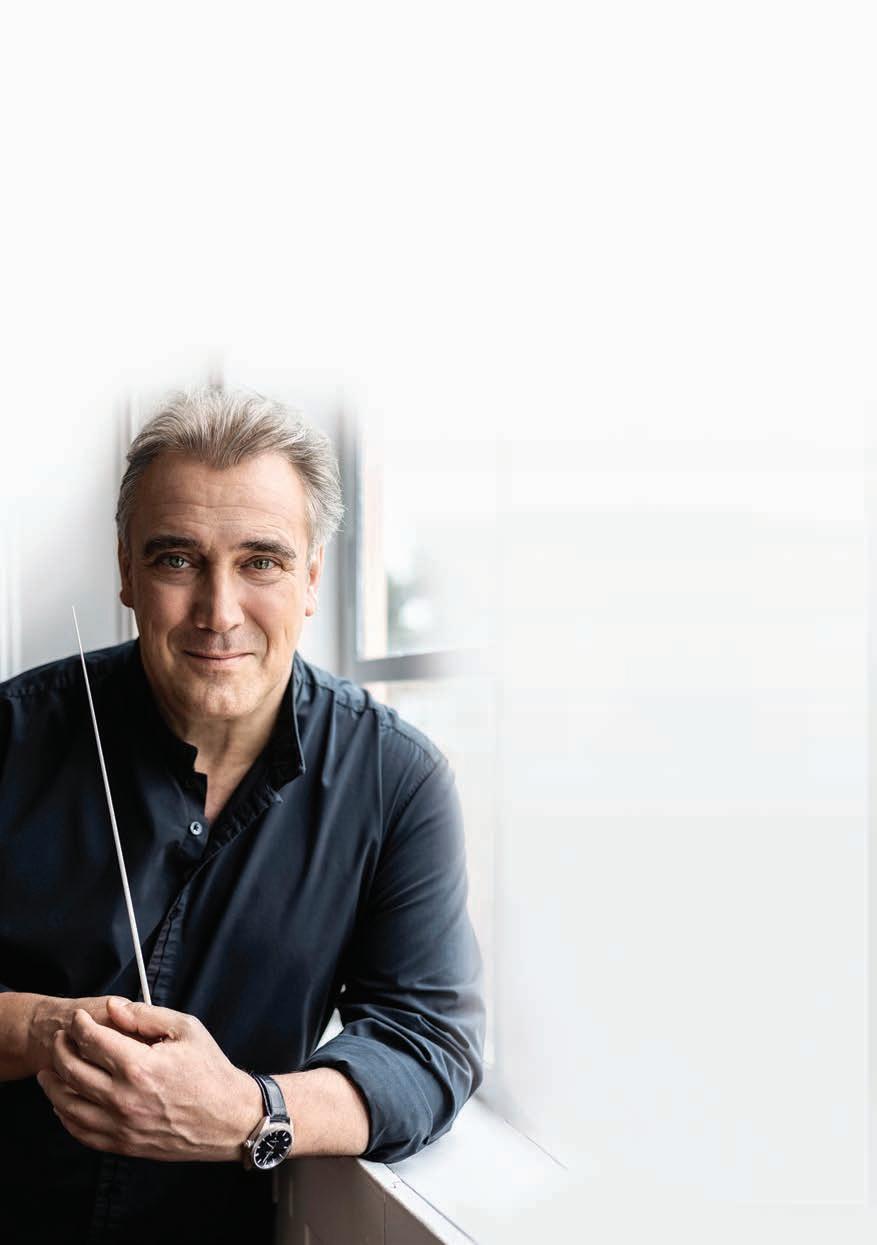
Best of all, every ticket raises funds to support the Orchestra’s core artistic program – helping the MSO continue presenting the best artists, thrilling repertoire, and worldclass orchestral performances.
COMING UP
An evening with Jaime Martín & Javier Perianes
Saturday 22 July 2023
An evening with Benjamin Northey & Deborah Cheetham
Fraillon AO
Sunday 15 October 2023
For more information and to book your ticket, please scan the QR code or call MSO Philanthropy team on 03 8646 1551
CHAIRMAN’S CIRCLE
Mr Marc Besen AC and the late Mrs Eva Besen AO
Gandel Foundation
The Gross Foundation
Di Jameson OAM and Frank Mercurio
Harold Mitchell Foundation
Lady Potter AC CMRI
Cybec Foundation
The Pratt Foundation
The Ullmer Family Foundation
Anonymous
ARTIST CHAIR BENEFACTORS
Cybec Assistant Conductor Chair
Carlo Antonioli Cybec Foundation
Concertmaster Dale Barltrop
David Li AM and Angela Li
Assistant Concertmaster
Tair Khisambeev Di Jameson OAM and Frank Mercurio
Young Composer in Residence
Melissa Douglas Cybec Foundation
2023 Composer in Residence
Mary Finsterer Kim Williams AM
PROGRAM BENEFACTORS
MSO Now & Forever Fund: International Engagement Gandel Foundation
Cybec 21st Century Australian Composers
Program Cybec Foundation
Digital Transformation Perpetual Foundation – Alan (AGL) Shaw Endowment
First Nations Emerging Artist Program
The Ullmer Family Foundation
East meets West The Li Family Trust, National Foundation for Australia-China Relations
MSO Live Online Crown Resorts Foundation, Packer Family Foundation
MSO Education Anonymous
MSO Academy Di Jameson OAM and Frank Mercurio, Mary Armour, Christopher Robinson in memory of Joan P Robinson
MSO For Schools Crown Resorts
Foundation, Packer Family Foundation, Department of Education, Victoria, through the Strategic Partnerships Program
Melbourne Music Summit Department of Education, Victoria, through the Strategic Partnerships Program
MSO Regional Touring Angor Foundation, William & Lindsay Brodie Foundation
Creative Victoria, Freemasons Foundation
Victoria, Robert Salzer Foundation, The Sir Andrew & Lady Fairley Foundation
The Pizzicato Effect Hume City Council’s Community Grants program, The Marian and E.H. Flack Trust, Flora & Frank Leith
Charitable Trust, Australian Decorative And Fine Arts Society, Anonymous
Sidney Myer Free Concerts Sidney Myer
MSO Trust Fund and the University of Melbourne
PLATINUM PATRONS $100,000+
Mr Marc Besen AC and the late Mrs Eva Besen AO
Lady Primrose Potter AC CMRI
Gandel Foundation
The Gross Foundation
David Li AM and Angela Li
Di Jameson OAM and Frank Mercurio Anonymous (1)
VIRTUOSO PATRONS $50,000+
Margaret Jackson AC
The Ullmer Family Foundation
Weis Family Anonymous (1)
IMPRESARIO PATRONS $20,000+
H Bentley
The Hogan Family Foundation
David Krasnostein AM and Pat Stragalinos
Annabel and Rupert Myer AO
Supporters
18 Supporters
Opalgate Foundation
Elizabeth Proust AO and Brian Lawrence
Lady Marigold Southey AC
Kim Williams AM
Anonymous (2)
MAESTRO PATRONS $10,000+
Christine and Mark Armour
Margaret Billson and the late Ted Billson
Krystyna Campbell-Pretty AM
Andrew Dudgeon AM
Dr Mary-Jane H Gething AO
Colin Golvan AM KC and Dr Deborah Golvan
Danny Gorog and Lindy Susskind
Nereda Hanlon and Michael Hanlon AM
David R Lloyd
Peter Lovell
Maestro Jaime Martín
Farrel and Wendy Meltzer
Ian and Jeannie Paterson
Christopher Robinson and the late Joan P Robinson
Yashian Schauble
Glenn Sedgwick
The Sun Foundation
Gai and David Taylor
Athalie Williams and Tim Danielson
Lyn Williams AM
The Wingate Group
Jason Yeap OAM – Mering Management Corporation
Anonymous (2)
PRINCIPAL PATRONS $5,000+
Mary Armour
John and Lorraine Bates
Barbara Bell in memory of Elsa Bell
Bodhi Education Fund
Julia and Jim Breen
Shane Buggle and Rosie Callanan
Oliver Carton
John Coppock OAM and Lyn Coppock
Perri Cutten and Jo Daniell
Ann Darby in memory of Leslie J. Darby
Mary Davidson and the late Frederick Davidson AM
The Dimmick Charitable Trust
Tim and Lyn Edward
Jaan Enden
Equity Trustees
Bill Fleming
Susan Fry and Don Fry AO
Sophie Galaise and Clarence Fraser
Geelong Friends of the MSO
Dr Rhyl Wade and Dr Clem Gruen
Cecilie Hall and the late Hon Michael Watt KC
Hilary Hall in memory of Wilma Collie
Louis J Hamon OAM
Merv Keehn and Sue Harlow
Dr Alastair Jackson AM
Paul and Amy Jasper
Dr John and Diana Frew
Suzanne Kirkham
Hyon-Ju Newman
Dr Elizabeth A Lewis AM
Sherry Li
Dr Caroline Liow
Dr Jane Mackenzie
Gary McPherson
The Mercer Family Foundation
Anne Neil in memory of Murray A. Neil
Newton Family in memory of Rae Rothfield
Ken Ong OAM
Bruce Parncutt AO
Dr Rosemary Ayton and Professor Sam Ricketson AM
Andrew and Judy Rogers
Rosemary and the late Douglas Meagher
The Rosemary Norman Foundation
Guy Ross
The Kate and Stephen Shelmerdine Family Foundation
Helen Silver AO and Harrison Young
Anita Simon
Brian Snape AM
Dr Michael Soon
Dawna Wright and Peter Riedel
Anonymous (2)
19
Supporters
ASSOCIATE PATRONS $2,500+
Carolyn Baker
Marlyn Bancroft and Peter Bancroft OAM
Sue and Barry Peake
Sascha O. Becker
Janet H Bell
Alan and Dr Jennifer Breschkin
Patricia Brockman
Nigel and Sheena Broughton
Stuart Brown
Lynne Burgess
Dr Lynda Campbell
Breen Creighton and Elsbeth Hadenfeldt
Katherine Cusack
Leo de Lange
Sandra Dent
Dr Paul Nisselle AM
Elaine Walters OAM
Barry Fradkin OAM and Dr Pam Fradkin
Carrillo Gantner AC and Ziyin Gantner
Kim and Robert Gearon
Steinicke Family
Janette Gill
R Goldberg and Family
Goldschlager Family Charitable Foundation
Jennifer Gorog
C. M. Gray
Susan and Gary Hearst
Dr Keith Higgins and Dr Jane Joshi
Hartmut and Ruth Hofmann
Jenny Tatchell
John Jones
Mrs Qian Li
The Cuming Bequest
Margaret and John Mason OAM
H E McKenzie
Dr Isabel McLean
Ian Merrylees
Alan and Dorothy Pattison
David and Nancy Price
Peter Priest
Peter and Carolyn Rendit
Tom and Elizabeth Romanowski
Christopher Menz and Peter Rose
Liliane Rusek and Alexander Ushakoff
Jeffrey Sher KC and Diana Sher OAM
Barry Spanger
Peter J Stirling
Clayton and Christina Thomas
Janet Whiting AM
Shirley and Jeffrey Zajac
Anonymous (4)
PLAYER PATRONS $1,000+
Dr Sally Adams
Anita and Graham Anderson
Australian Decorative & Fine Arts Society
Geoffrey and Vivienne Baker
Robbie Barker
Allen and Kathryn Bloom
Michael Bowles and Alma Gill
Joyce Bown
Professor Ian Brighthope
Miranda Brockman
Drs John D L Brookes and Lucy V Hanlon
Jill and Christopher Buckley
Dr Robin Burns and Dr Roger Douglas
Ronald and Kate Burnstein
Kaye Cleary
John and Mandy Collins
Andrew Crockett AM and Pamela Crockett
Mrs Nola Daley
Panch Das and Laurel Young-Das
Caroline Davies
Michael Davies
Natasha Davies for the Trikojus Education Fund
Rick and Sue Deering
Suzanne Dembo
John and Anne Duncan
Jane Edmanson OAM
Diane Fisher
Grant Fisher and Helen Bird
Alex Forrest
Frank Tisher OAM and Dr Miriam Tisher
Applebay Pty Ltd
David and Esther Frenkiel OAM
20
Supporters
Anthony Garvey and Estelle O’Callaghan
David I Gibbs AM and Susie O’Neill
Sonia Gilderdale
Dr Celia Godfrey
Dr Marged Goode
Dr Sandra Hacker AO and Mr Ian Kennedy AM
Dawn Hales
David Hardy
Tilda and the late Brian Haughney
Cathy Henry
Dr Jennifer Henry
Anthony and Karen Ho
Peter and Jenny Hordern
Katherine Horwood
Penelope Hughes
Shyama Jayaswal
Basil and Rita Jenkins
Sandy Jenkins
Sue Johnston
John Kaufman
Angela Kayser
Drs Bruce and Natalie Kellett
Dr Anne and Leonard Kennedy
Akira Kikkawa
Tim Knaggs
Professor David Knowles and Dr Anne McLachlan
Dr Jerry Koliha and Marlene Krelle
Jane Kunstler
Ann Lahore
Kerry Landman
Kathleen and Coran Lang
Bryan Lawrence
Phil Lewis
Andrew Lockwood
Elizabeth H Loftus
Chris and Anna Long
Gabe Lopata
John MacLeod
Eleanor & Phillip Mancini
Marshall Segan in memory of Berek Segan
OBE and Marysia Segan
Aaron McConnell
Ian McDonald
Wayne McDonald and Kay Schroer
Ray McHenry
John and Rosemary McLeod
Don and Anne Meadows
Dr Eric Meadows
Professor Geoffrey Metz
Sylvia Miller
Ian Morrey and Geoffrey Minter
Anthony Morton
Laurence O’Keefe and Christopher James
Roger Parker and Ruth Parker
Susan Pelka
Ian Penboss
Kerryn Pratchett
Professor Charles Qin OAM and Kate Ritchie
Eli Raskin
Jan and Keith Richards
James Ring
Dr Peter Rogers and Cathy Rogers OAM
Dr Ronald and Elizabeth Rosanove
Marie Rowland
Jan Ryan
Martin and Susan Shirley
P Shore
John E Smith
Dr Peter Strickland
Dr Joel Symons and Liora Symons
Russell Taylor and Tara Obeyesekere
Geoffrey Thomlinson
Andrew and Penny Torok
Christina Turner
Ann and Larry Turner
Leon and Sandra Velik
The Reverend Noel Whale
Edward & Paddy White
Nic and Ann Willcock
Robert and Diana Wilson
Richard Withers
Lorraine Woolley
Youth Music Foundation
Anonymous (13)
21 Supporters
OVERTURE PATRONS $500+
Margaret Abbey PSM
Jane Allan and Mark Redmond
Mario M Anders
Jenny Anderson
Dr Judith Armstrong and Robyn Dalziel
Doris Au
Benevity Australia Online Giving Foundation
Mr Peter Batterham
Peter Berry and Amanda Quirk
Dr William Birch AM
Dr Robert Brook
Elizabeth Brown
Suzie Brown OAM and the late Harvey Brown
John Brownbill
Roger and Coll Buckle
Jungpin Chen
Charmaine Collins
Dr John Collins
Dr Sheryl Coughlin and Paul Coughlin
Judith Cowden in memory of violinist
Margaret Cowden
Gregory Crew
Dr Oliver Daly and Matilda Daly
Merrowyn Deacon
Bruce Dudon
Melissa and Aran Fitzgerald
Brian Florence
Elizabeth Foster
Chris Freelance
Mary Gaidzkar
Simon Gaites
David and Geraldine Glenny
Hugo and Diane Goetze
Louise Gourlay OAM
Jan and the late Robert Green
Christine Grenda
George Hampel AM KC and Felicity Hampel AM SC
Geoff Hayes
Jim Hickey
William Holder
Rod Home
R A Hook
Gillian Horwood
Geoff and Denise Illing
Wendy Johnson
Peter Kempen AM
John and Christine Keys
Belinda and Alexandra King
Dr Kim Langfield-Smith
Janet and Ross Lapworth
Pauline and David Lawton
Paschalina Leach
Dr Jenny Lewis
Sharon Li
Dr Susan Linton
The Podcast Reader
Morris and Helen Margolis
Janice Mayfield
Shirley A McKenzie
Dr Alan Meads and Sandra Boon
Marie Misiurak
Joan Mullumby
Valerie Newman
Dr Judith S Nimmo
Estelle O’Callaghan
Brendan O’Donnell
David Oppenheim
Sarah Patterson
Adriana and Sienna Pesavento
Geoffrey Ravenscroft
Alfonso Reina and Marjanne Rook
Professor John Rickard
Dr Anne Ryan
Viorica Samson
Carolyn Sanders
Dr Nora Scheinkestel
Julia Schlapp
Madeline Soloveychik
Dr Alex Starr
Dyan Stewart
Ruth Stringer
Tom Sykes
Reverend Angela Thomas
Mely Tjandra
22 Supporters
Rosemary Warnock
Amanda Watson
Michael Whishaw
Deborah Whithear and Dr Kevin Whithear OAM
Dr Susan Yell
Anonymous (14)
CONDUCTOR’S CIRCLE
Jenny Anderson
David Angelovich
G C Bawden and L de Kievit
Lesley Bawden
Joyce Bown
Mrs Jenny Bruckner and the late Mr John Bruckner
Ken Bullen
Peter A Caldwell
Luci and Ron Chambers
Beryl Dean
Sandra Dent
Alan Egan JP
Gunta Eglite
Marguerite Garnon-Williams
Drs L C Gruen and R W Wade
Louis J Hamon AOM
Charles Hardman
Carol Hay
Jennifer Henry
Graham Hogarth
Rod Home
Lyndon Horsburgh
Tony Howe
Lindsay and Michael Jacombs
Laurence O’Keefe and Christopher James
John Jones
Grace Kass and the late George Kass
Sylvia Lavelle
Pauline and David Lawton
Cameron Mowat
Ruth Muir
David Orr
Matthew O’Sullivan
Rosia Pasteur
Penny Rawlins
Joan P Robinson
Anne Roussac-Hoyne and Neil Roussac
Michael Ryan and Wendy Mead
Andrew Serpell and Anne Kieni Serpell
Jennifer Shepherd
Suzette Sherazee
Dr Gabriela and Dr George Stephenson
Pamela Swansson
Lillian Tarry
Tam Vu and Dr Cherilyn Tillman
Mr and Mrs R P Trebilcock
Peter and Elisabeth Turner
Michael Ulmer AO
The Hon. Rosemary Varty
Terry Wills Cooke OAM and the late Marian Wills Cooke
Mark Young
Anonymous (19)
The MSO gratefully acknowledges the support of the following Estates:
Norma Ruth Atwell
Angela Beagley
Christine Mary Bridgart
The Cuming Bequest
Margaret Davies
Neilma Gantner
The Hon Dr Alan Goldberg AO QC
Enid Florence Hookey
Gwen Hunt
Family and Friends of James Jacoby
Audrey Jenkins
Joan Jones
Pauline Marie Johnston
C P Kemp
Peter Forbes MacLaren
Joan Winsome Maslen
Lorraine Maxine Meldrum
Prof Andrew McCredie
Jean Moore
Joan P Robinson
Maxwell Schultz
Miss Sheila Scotter AM MBE
Marion A I H M Spence
Molly Stephens
23 Supporters
Gwennyth St John
Halinka Tarczynska-Fiddian
Jennifer May Teague
Albert Henry Ullin
Jean Tweedie
Herta and Fred B Vogel
Dorothy Wood
COMMISSIONING CIRCLE
Cecilie Hall and the Late Hon Michael Watt KC
Tim and Lyn Edward
Weis Family
FIRST NATIONS CIRCLE
John and Lorraine Bates
Colin Golvan AM KC and Dr Deborah Golvan
Sascha O. Becker
Maestro Jaime Martín
Elizabeth Proust AO and Brian Lawrence
The Kate and Stephen Shelmerdine Family Foundation
Michael Ullmer AO and Jenny Ullmer
Jason Yeap OAM – Mering Management Corporation
ADOPT A MUSICIAN
Mr Marc Besen AC and the late Mrs Eva Besen AO
Chief Conductor Jaime Martín
Shane Buggle and Rosie Callanan
Roger Young
Andrew Dudgeon AM
Rohan de Korte, Philippa West
Tim and Lyn Edward
John Arcaro
Dr John and Diana Frew
Rosie Turner
Sophie Galaise and Clarence Fraser
Stephen Newton
Dr Mary-Jane Gething AO
Monica Curro
The Gross Foundation
Matthew Tomkins
Dr Clem Gruen and Dr Rhyl Wade
Robert Cossom
Cecilie Hall and the late Hon Michael Watt KC
Saul Lewis
Nereda Hanlon and Michael Hanlon AM
Abbey Edlin
Margaret Jackson AC
Nicolas Fleury
Di Jameson OAM and Frank Mercurio
Elina Fashki, Benjamin Hanlon, Tair Khisambeev, Christopher Moore
Dr Elizabeth A Lewis AM
Anthony Chataway
David Li AM and Angela Li
Dale Barltrop
Gary McPherson
Rachel Shaw
Anne Neil
Eleanor Mancini
Hyon-Ju Newman
Patrick Wong
Newton Family in memory of Rae Rothfield
Cong Gu
The Rosemary Norman Foundation
Ann Blackburn
Andrew and Judy Rogers
Michelle Wood
Glenn Sedgwick
Tiffany Cheng, Shane Hooton
Dr Martin Tymms and Patricia Nilsson
Natasha Thomas
Anonymous
Prudence Davis
HONORARY APPOINTMENTS
Life Members
Mr Marc Besen AC
John Gandel AC and Pauline Gandel AC
Sir Elton John CBE
Harold Mitchell AC
Lady Potter AC CMRI
Jeanne Pratt AC
Michael Ullmer AO and Jenny Ullmer
Anonymous
MSO Ambassador
Geoffrey Rush AC
24
Supporters
The MSO honours the memory of Life Members
Mrs Eva Besen AO
John Brockman OAM

The Honourable Alan Goldberg AO QC
Roger Riordan AM
Ila Vanrenen
MSO ARTISTIC FAMILY
Jaime Martín
Chief Conductor
Xian Zhang
Principal Guest Conductor
Benjamin Northey
Principal Conductor in Residence
Carlo Antonioli
Cybec Assistant Conductor
Sir Andrew Davis CBE
Conductor Laureate
Hiroyuki Iwaki †
Conductor Laureate (1974–2006)
Warren Trevelyan-Jones
MSO Chorus Director
Siobhan Stagg
Soloist in Residence
Gondwana Voices
Ensemble in Residence
Christian Li
Young Artist in Association
Mary Finsterer
Composer in Residence
Melissa Douglas
Cybec Young Composer in Residence
Christopher Moore
Creative Producer, MSO Chamber
Deborah Cheetham Fraillon AO
MSO First Nations Creative Chair
Dr Anita Collins
Creative Chair for Learning and Engagement
Artistic Ambassadors
Tan Dun
Lu Siqing
MSO BOARD
Chairman
David Li AM
Co-Deputy Chairs
Di Jameson
Helen Silver AO
Managing Director
Sophie Galaise
Board Directors
Shane Buggle
Andrew Dudgeon AM
Martin Foley
Lorraine Hook
Margaret Jackson AC
David Krasnostein AM
Gary McPherson
Farrel Meltzer
Edgar Myer
Glenn Sedgwick
Mary Waldron
Company Secretary
Oliver Carton
The MSO relies on your ongoing philanthropic support to sustain our artists, and support access, education, community engagement and more. We invite our supporters to get close to the MSO through a range of special events.
The MSO welcomes your support at any level. Donations of $2 and over are tax deductible, and supporters are recognised as follows:
$500+ (Overture)
$1,000+ (Player)
$2,500+ (Associate)
$5,000+ (Principal)
$10,000+ (Maestro)
$20,000+ (Impresario)
$50,000+ (Virtuoso)
$100,000+ (Platinum)
25 Supporters
Principal Partner

Premier Partners
Education Partner
Major Partners
Orchestral Training

Partner
Government Partners

Venue Partner
Supporting Partners

Thank you to our Partners
Quest Southbank
Bows for Strings
Ernst & Young
Media and Broadcast Partners
Trusts and Foundations
The Sir Andrew and Lady Fairley Foundation, The Angior Family Foundation, The William and Lindsay Brodie Foundation, Flora & Frank Leith Trust, Perpetual Foundation – Alan (AGL) Shaw Endowment, Sidney Myer MSO Trust Fund



Freemasons Foundation Victoria




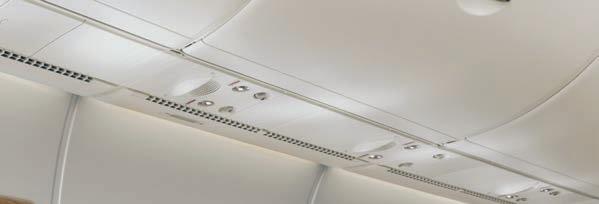























 * Denotes Guest Musician
* Denotes Guest Musician



















